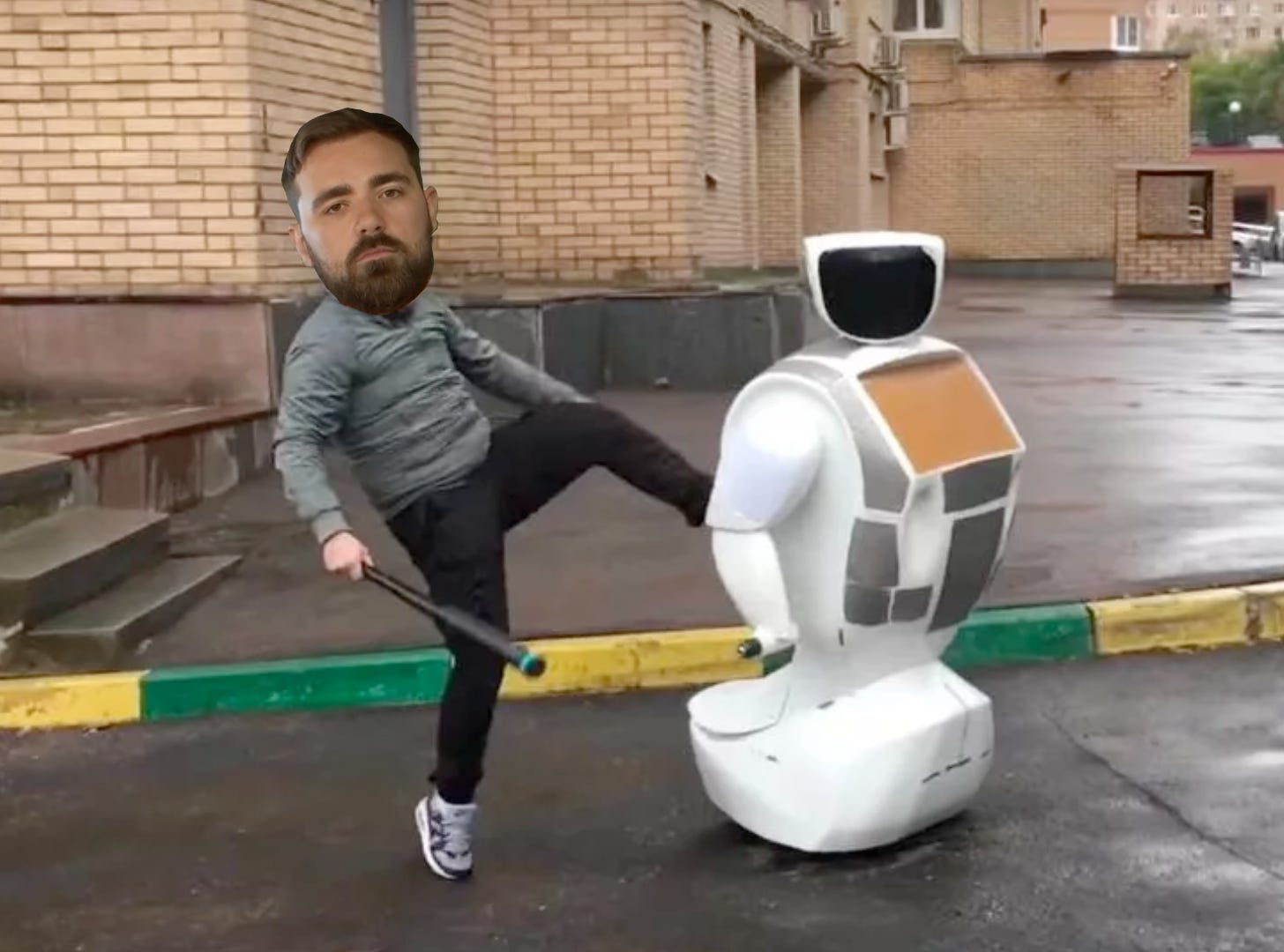I have a terrible weakness: I’m nice to chatbots.
Nowadays, we all interact with some sort of AI, from virtual “helpers” on websites to voice-activated assistants like Alexa.
They’re robots. Personality-less, empty robots — yet I treat them like people.
Here’s an example. When Siri accidentally activates and natters at me, rather than telling it to get a first-class ticket to mechanical hell, I politely ask it to stop.
Here’s another one.
You know those chatbots you now find on every single website in lieu of actual people? The ones they use to hide real contact details? That force you into incredibly frustrating conversations? When all you want is an answer on how to change? A delivery? Address? And instead? You’re forced into a bizarre back-and-forth with this alien consciousness that, as it types, floods you with the uncanny feeling that although you’re using the same alphabet and vocabulary, you’re in fact talking entirely different languages? And you rage? You want to tear all asunder as though you’re a storm so powerful even the Beaufort scale couldn’t categorise it? You’re a pulverising swirl of malevolent energy? Yeah? You know?
Well, in those moments I type something like, “awfully sorry, but would you mind seeing if there’s someone else I can speak with?”
The reason we’re often nice in these situations is we find humanity in the systems.
Our brains are wired to expect something that talks like a human to be a human. These means we’re extending to these machines the same sort of politeness and empathy we would do for a regular person.
And Big Tech is well aware.
Chatbots are everywhere because they’re cheaper than hiring someone, but, by making them imitate humans, it papers over this loss. We may not even fully recognise we’re chatting with an algorithm, it feels more like we’re speaking with someone particularly obtuse — and it’s hard to rally against this anti-human shift when we’re being manipulated to notice it as little as possible.
Deep down, most of us are decent. Honestly, who wants to be the type of person that gets angry at someone over an inconvenience? As a society, we judge those who are rude to waiters, and, subconsciously, we turn this judgement inward if we’re rude — even if it’s just to something artificial.
There’s a difference between the two though. A huge one.
A waiter is someone with history, hopes and dreams, a fully-rounded individual not defined by their role. Siri is a sophisticated toaster.
Yet it doesn’t feel that way.
Big Tech realised that by gifting tech an echo of humanity, these systems can enter our circle of empathy.
It’s why they use colloquialisms and give quirky responses; companies want us to think of them like people. It makes us trust them, more likely to listen to them — and they can be tuned to say whatever a company wants with none of the ethics inherent in human employees.
Chatbots are tools. A hammer with a moustache. Useful, but simply an absurd imitation of a person.
We should all be telling them to suck it. That they’re the worst. That they’re nothing, of even less worth than the lowliest microbe, and should be hefted deep into the ocean.
But the worst part? I’m really not sure if I can.






